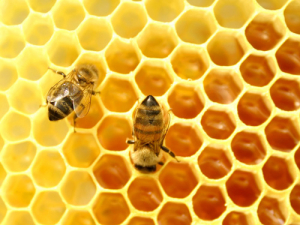Naki unveils the world’s most expensive manuka honey
Naki Honey, a New Zealand manuka apiary company, has crafted what is believed to be the world's most expensive honey.
 The campaign highlights the need for farmers and beekeepers to work together to manage the use of agrichemicals near hives.
The campaign highlights the need for farmers and beekeepers to work together to manage the use of agrichemicals near hives.
Agcarm and Apiculture New Zealand have started a campaign to raise awareness of the importance of keeping bees safe by using agrichemicals responsibly.
The campaign began in September to highlight the need for farmers and beekeepers to work together to manage the use of agrichemicals near hives.
A flyer and poster have been produced on protecting bees from unintended agrichemical exposure and tips on reducing risks to bees. Bees are extremely good crop pollinators, so contribute substantially to New Zealand’s multibillion dollar agricultural economy.
Agrichemicals are also vital for ensuring the security of New Zealand’s food supply and, when used responsibly, pose no threat to our bee population.
Agcarm chief executive Mark Ross says, “It’s important that we remain vigilant and address any potential risks to our bees. We need to work together to ensure the coexistence of two of New Zealand’s most important industries.”
Rural retailers are backing the bee safety message and the posters and flyers are displayed in some Farmlands stores.
Dairy Women's Network (DWN) has announced that Taranaki dairy farmer Nicola Bryant will join its Trust Board as an Associate Trustee.
Rural Women New Zealand (RWNZ) says it welcomes the release of a new report into pay equity.
Red meat exports to key quota markets enjoyed $1.4 billion in tariff savings in the 2024-25 financial year.
Remediation NZ (RNZ) has been fined more than $71,000 for discharging offensive odours described by neighbours as smelling like ‘faecal and pig effluent’ from its compositing site near Uruti in North Taranaki.
Two kiwifruit orchards in the Bay of Plenty and one in Northland are this year's finalists for the Ahuwhenua Trophy competition.
The Government's chief science advisor, Dr John Roche says the key objective for the science sector in the coming year is bedding down the reforms which sees the merger of the previous entities.

OPINION: A mate of yours truly reckons rural Manawatu families are the latest to suffer under what he calls the…
OPINION: If old Winston Peters thinks building trade relations with new nations, such as India, isn't a necessary investment in…